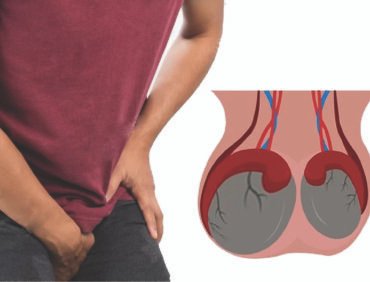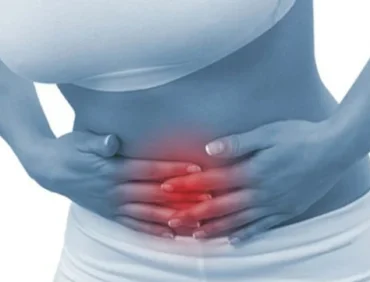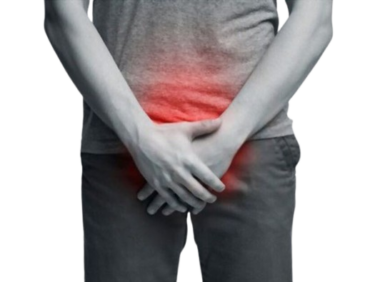Infertility diagnosis can be devastating. With more couples now being diagnosed with infertility, there is no denying the time is now to work to change how we educate and manage fertility health.
This write-up teaches about the top main causes of infertility and the natural remedy options you have to tackle them successfully.
In most cases, a couple will be given an infertility diagnosis, it usually mean they have gone through extensive fertility testing.
What couples may not know however is that there are often natural options to help correct many fertility problems.
We have several articles dedicated to aiding couples who have been diagnosed with infertility.
At Plan B Wellness, we are dedicated to providing information on natural options for healing and restoring healthy fertility in both male and female.
There are actually 2 types of infertility as explained below;
Primary infertility which is defined as a couple that has not been able to conceive after trying for a year or more of unprotected intercourse.
Secondary infertility is defined as couples who have had children previously, but are unable to achieve another pregnancy.
Let us look at the Top 11 causes of infertility
- Ovulation Disorder
There are a variety of reasons a woman may have no ovulation or irregular ovulation cycles. Hormonal imbalance is the number one reason women have ovulation disorders.
There are many factors which play a role in regulating the menstrual cycle.
When the delicate communication between the pituitary gland, the ovaries and the follicles does not work properly, ovulation cannot occur. Below are some reasons why hormonal imbalance may occur, causing ovulation disorder:
- Poor egg health – Problems with one or more of the endocrine glands
- Poor nutrition
- Stress
- Xenohormones
- Poor lifestyle choices
- Low Body Weight
- Obesity
- Long-term use of fertility medications containing hormones, for example birth control.
- Genetic predisposition
2. Low Sperm Count

There are couples who are battling with infertility today as a result of low sperm count from the man. It has been found that 20 million sperm/ml or more is a healthy sperm count. Anything less than that is determined low sperm count. Low sperm count may be due to some or a combination of the following reasons:
- Poor lifestyle choices; smoking, drinking alcohol, poor diet, stress, environmental pollution, EMF’s, tight clothing.
- Antisperm antibodies
- Genetic predisposition
- Damage to the reproductive organs -Illness, for example cancer treated with chemotherapy
Click here to learn more about how to boost your sperm count fast naturally.
3. Poor Sperm Health
 This includes sperm motility (movement of the sperm, tail whip) and morphology (shape/proper formation of the sperm and DNA). 25% of infertility cases are due to poor sperm health. The causes of poor sperm health are often the same as those for low sperm count, though not all men with low sperm count will also have poor sperm health and vice versa.
This includes sperm motility (movement of the sperm, tail whip) and morphology (shape/proper formation of the sperm and DNA). 25% of infertility cases are due to poor sperm health. The causes of poor sperm health are often the same as those for low sperm count, though not all men with low sperm count will also have poor sperm health and vice versa.
If you have carried out an SFA (Seminal Fluid Analysis) and you have been diagnosed of poor sperm motility or morphology, there is a way out for you. Click here to l earn more about a natural remedy you can use to treat poor sperm motility and morphology.
4. Blocked Fallopian Tubes

The fallopian tubes are the pathways in which the ova (eggs) travel from the ovaries down into the uterus, and if there is a blockage in these tubes it can prevent this from occurring and that means pregnancy cannot take place in such a woman. The main causes of blocked fallopian tubes are:
- Pelvic Inflammatory Disease (PID), often from STD’s
- Endometriosis
- Uterine fibroids
- Ectopic pregnancy
In fact, statistics have it that 25% of infertility cases are due to blocked fallopian tubes.
If you have been diagnosed of blocked Fallopian tubes or any type and whether it is just one tube that is blocked or the two, there is a way out for you. Click here to learn about a natural way you can reopen your blocked Fallopian tubes and reverse your infertility.
5. Endometriosis

Endometriosis is when excess endometrium lining of the uterus that normally grows in preparation for the implanting of the egg does not completely shed during menstruation. It then begins to attach to other parts of the body besides the uterus. When menses comes, not only does the lining in the uterus bleed, the endometriosis that has grown in other places of the body also bleeds. 35-50% of infertility cases in women are due to endometriosis. This is two to three times the rate of infertility in the general population.
Click here to learn about a natural solution for endometriosis.
6. Polycystic Ovarian Syndrome (PCOS)

This syndrome is attributed to hormonal imbalance in the female body. The hormone imbalance may cause menstrual cycle irregularities, weight gain, insulin resistance, skin problems, small cysts in the ovaries, and hirsutism (excessive body hair/thinning head hair). Not all women who are diagnosed with PCOS have all of the symptoms mentioned above or may only have a couple. PCOS is not very well understood and because each woman varies in her symptoms, it can be difficult to properly diagnose. PCOS is a very common condition, affecting 4-18% of reproductive age women.
7. Poor Egg Health
There are many factors that may impact the health of the ovaries and eggs including environmental factors, hormones in the diet, stress, lifestyle choices and ageing. Important note: Poor ovarian reserve (low follicle count) with poor egg health before the age of 40 may be a sign of Premature Ovarian Failure (POF). This is something you will want to talk to your doctor about, including testing options to rule this out, if you are suffering from infertility.
- Poor egg health may be due to some or a combination of the following reasons:
- Poor lifestyle choices; smoking, drinking alcohol, poor diet, stress, environmental pollution and sedentary lifestyle (poor circulation).
- Hormonal imbalance
- Genetic predisposition
- Damage to the reproductive organs
- Illness, for example cancer treated with chemotherapy
- Auto-immune disorder
- Ageing
8. Anti-sperm Antibodies
In some people, semen can cause an immune response. This can happen in both men and women. Antibodies are triggered during the immune response that work to kill off the sperm. High numbers of sperm antibodies can make it difficult for the sperm to reach the egg, and/or fertilize the egg. Anti-sperm antibodies also may damage sperm that survive, which increases chances of miscarriage.
A man’s body may create anti-sperm antibodies when the sperm come into contact with his immune system cells. This happens when the testicles are injured, after surgery (biopsy, vasectomy), or if the prostate gland has an infection. The testicles protect the sperm from immune cells, when they are damaged, they may no longer be able to do that. Over 70% of all men who get a vasectomy will develop anti-sperm antibodies.
Some women’s bodies have an allergic reaction to her partner’s sperm. This stimulates the immune system to create anti-sperm antibodies that attack her partner’s sperm. This may also cause her vaginal tissues to react to the semen, which may result in rash, sores, or painful sexual intercourse.
9. Vas Deferens Blockage

This is also known as blockage of the epididymis. The Vas Deferens is the tube in which the fertile sperm are transported. Varicoceles (varicose veins) of the testicles is the number one reason for this blockage. Sexually Transmitted Disease (STD’s) such as gonorrhoea or Chlamydia in men may also cause a blockage. Varicoceles is usually treated with surgery but there is a natural and less invasive option for you too. It is important to be treated for any STD right away to prevent damage to the reproductive organs.
If this is the reason for your infertility, click here to see a natural solution for varicoceles.
10. Combination Infertility
This is when both partners have been diagnosed with one or more fertility issues. About 20-30% of infertility cases are due to combination infertility. This diagnosis can feel devastating, but there is always hope! Please review the individual fertility issues mentioned above for more information.
11. Unexplained Infertility
Of all the couples diagnosed with infertility, 15% are diagnosed with unexplained infertility. This means the doctors cannot find a reason why pregnancy is not occurring. Both partners have done all the tests and nothing comes back as a definitive cause of infertility. While it may feel good to know you don’t have a specific problem, it can be confusing on what to do next.
This is where natural therapies can be very effective. The focus with natural therapies is geared toward bringing the body back into balance. Do not hesitate to contact us if you fall in this category and you need help. However, before you send us a mail about this, be ready to tender your medical reports (for the both partners) that confirm that everything is ok and we take it up from there.
If you enjoyed and have learnt from this article, don’t forget to share it with others. too Add your comments and questions below and you can also forward all enquiries to consult@www.planbwellness.com
Stay Healthy And Never Give Up!
Plan B Wellness
Email – consult@planbwellness.com
IG – @planbwellness










[…] The “male factor” contributes to infertility around half the time, and about one third of the time, it’s the main cause of infertility. […]